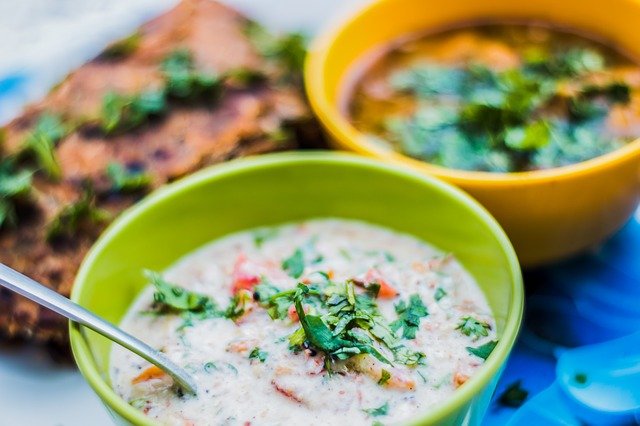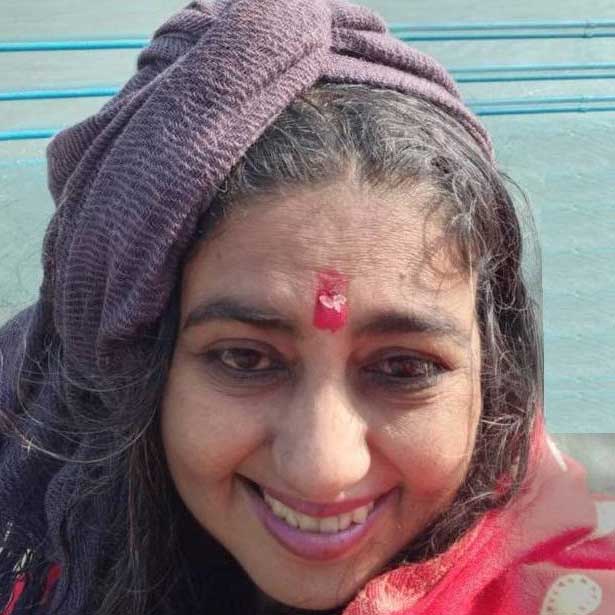
How To Overcome Anger
Anger (krodh), is one of the six deadly enemies which lurks in the shadows of the mind, awaiting an opportune moment to spring up and raise its ugly head from the dark waters. It is a fearsome beast that can wreak untold damage, unless checked and tamed. It creeps up on us when we are least aware and takes possession like a demon. It is then already too late! We lose control of our words and actions and live to regret it and to pay the price. People have even killed those they loved in a state of fury. Such is the power and potential malefic nature of anger.
The six passions or deadly enemies of mankind, include anger, attachment, jealousy, greed, lust and pride. Considered impurities of the mind, these evil enemies are the gateway to misery. Anger veils the mind and clouds it so that we can no longer distinguish between right and wrong. Anger is Tamas in its nature, dark and clouding and causing confusion. It is born of ego and desire; when desire is frustrated or thwarted, anger rises and swells. The Gita states that attachment is the root of desire, which is the cause of anger and that anger leads to confusion, loss of memory and the loss of the discriminating power of the intellect. Only the self-controlled man, free from attraction and repulsion, can be peaceful.
Anger is experienced by everyone to varying degrees except for the saints and sages, who remain calm and equanimous, even when abused. It often has its root in pain caused by attachments. Anger is a poison that spreads in the body and mind and affects the angry one, more than the abused. It raises the pulse and blood pressure and can cause headaches, heart disease and even strokes.
The victim is injured by the harshness of sharp and angry words and the scars remain, but when we become angry and lose control, we inevitably feel the destructive effect of the anger on ourselves. It is like sending out an arrow which returns like a boomerang with even greater intensity to pierce the heart. The mind becomes restless and the conscience impure. It leaves a feeling of terrible guilt, which weighs heavily on the conscience.

The heart is unsettled when it does something that is not right or causes pain to others even if the mind tries to justify it. Once the fury is unleashed, we cannot withdraw it. It will remain engraved in the heart as a painful memory. Therefore, it is so important to control this beast rather than let it control us.
High Pitta either in the constitution (prakriti) or as part of an imbalance (vikruti) may make someone more prone to experiencing anger, especially if Tamas is predominant. If Pitta is high, then a cooling Pitta-pacifying diet, avoiding hot spicy food and minimising sour, salty and fermented foods, as well as external cooling measures in the environment can be helpful. Certain types of pranayama such as shitali and sheetkari are cooling and certain relaxing yoga asanas may also be helpful in lowering the arousal and tension. Pranayama in general can be helpful as mind and breath are intimately linked and controlling breath will help to control and calm the mind. Taking regular exercise and spending time in nature is also a good way to destress. Withdrawing from a situation, which may escalate, and going out for a long walk may also be helpful.

We must at all costs protect ourselves from anger. But how to do this? There are many strategies given that are helpful. In modern psychology there are therapies aiming at anger management using a cognitive behavioural approach, which help us to identify the thoughts that gave rise to the anger. We become more aware of the connection between our thoughts and emotional reactions. It therefore helps us to restructure our thinking process. Role-play also helps to improve communication skills and interpersonal skills.
Mindfulness, which has its origin in Eastern meditation practices, is also being increasingly used as a technique to witness, self-regulate and decrease the level of arousal. It helps us to enhance our awareness, which is a key to controlling our anger.
We need to try to understand why we feel angry and if we can analyse the root, we can then try to correct it. With the light of awareness, we can start to change our way of reacting when things don’t go our way. When we see that it is attachment and desire for something that creates the tension, we can try to let go of this desire and accept things as they are and people as they are, imperfect as situations may be. It is the ego that demands everything must go our way. If we can accept that things will not always go our way, people will oppose us, and we must expect to be frustrated from time to time, this can help to reduce our expectations. Cultivation of dispassion helps us to loosen the strong bonds of attachment, which are at the root of the problem.

Ayurveda guides us in the right use of speech and action. Our speech must be gentle and pleasing and never harsh. We must contain the urge for anger or harsh words. Similarly, our actions should not cause pain or injury. Anger is considered a psychological disorder caused by an error of the intellect and a psychic urge that must be restrained. Ahimsa (non-violence) is also one of the Yamas which are the foundation of Yoga applying not only to speech and conduct but also to thought. That is, even angry and hateful thoughts must not be entertained. Non-violence is important for peace of mind and without peace of mind, all is lost.
We should not suppress anger but with the light of awareness nip it in the bud before it unfolds, and see its root. By maintaining a practice, we can try to keep a level of awareness and mindfulness. Suppression only leaves it undigested and unprocessed. Awareness allows us to see it, understand it and manage it.
How can we overcome an enemy? We cannot overcome him if we are unaware of him and he takes us by surprise. We must be always vigilant and witnessing, aware of the enemy and not allow him to stealthily creep up on us, but with awareness see him even in his initial moves so that on being witnessed he retreats and dissolves. Awareness certainly seems to be the key in most practices and any practice that helps to maintain a level of awareness will help in this regard.

But there is yet another way which I discovered. It is not so easy but appears also very effective. I asked my mother, who was of a passionate and fiery temperament and would become angry over the injustices in the world, why she no longer gets angry. She had a stroke four years ago and I have not seen a hint of anger since. She replied that taking the name of the Lord is probably the most powerful way of overcoming this. And sincere prayer for the Lord’s help in what to do, always helps in anything that feels unsurmountable. Clearly it had worked a miracle in her case.
Keeping the Lord in your heart keeps the heart pure and clean. As my Guru ji once said to me, that if you are always connected to God you would not do what you should not do, and you would do what you should do. How true that is, but the difficulty and challenge is to remain always connected in the heart!
















